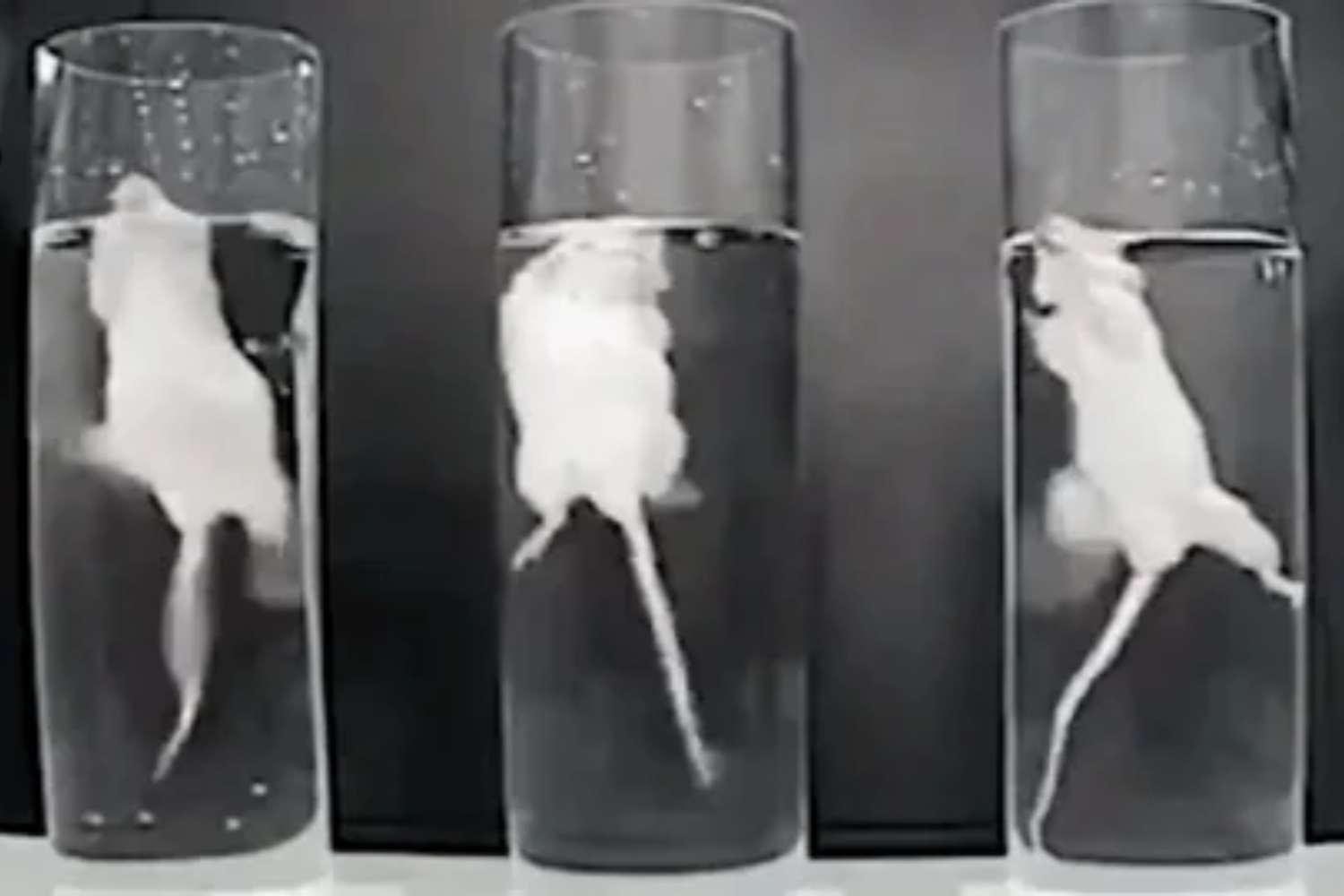The UK moves toward ending the Forced Swim Test: an experiment forcing small animals to swim to exhaustion. A historic victory for mice and rats, thanks to PETA's efforts, but not enough: it's time to impose a total ban on animal testing

Table of contents
The United Kingdom is about to mark a historic step in animal welfare: the Home Office has confirmed its intention to end licensing for the Forced Swim Test, an experiment that forces small animals to swim to exhaustion. This cruel test, now recognized as useless and a source of suffering for rats and mice, will receive no new permits after existing ones expire in 2028.
During the Forced Swim Test, mice and rats are placed in water-filled cylinders with no escape route, forced to swim desperately and attempt to flee. The practice, beyond terrorizing the animals, often leads to their killing at the end of the experiment. Experts have repeatedly questioned the test’s effectiveness in developing antidepressants, emphasizing that the suffering inflicted does not guarantee real benefits for humans.
The impact of PETA’s campaign
The change in the United Kingdom is the result of continuous pressure from PETA UK. Meetings with government officials, demonstrations, and petitions with over 40,000 signatures pushed the Home Office to take a stand, marking a turning point in the protection of laboratory animals.
The pharmaceutical industry’s response
Many major pharmaceutical companies, including Johnson & Johnson, Sanofi, Bayer, GlaxoSmithKline, Pfizer, and others, have already announced that they will no longer conduct the Forced Swim Test. The UK’s decision sends a clear signal to the global scientific community: antidepressant research can progress without resorting to cruel and obsolete practices, paving the way for more ethical and reliable methods.
Toward a cruelty-free future
While we can partially celebrate, the reality is that the true victory for animals will be a total ban on experiments that inflict gratuitous suffering. The UK’s step represents a concrete example of how legislation, public pressure, and corporate responsibility can converge to improve the lives of small animals, promoting a future where scientific research and respect for life coexist harmoniously. But there is much, much more to be done for these poor defenseless creatures.
Source: PETA
